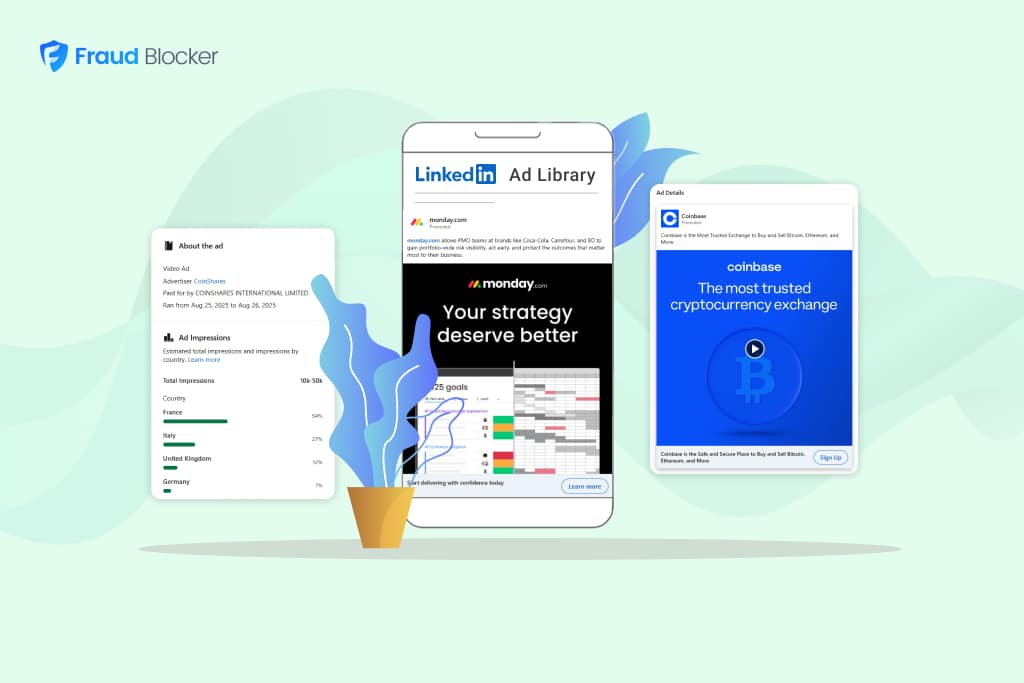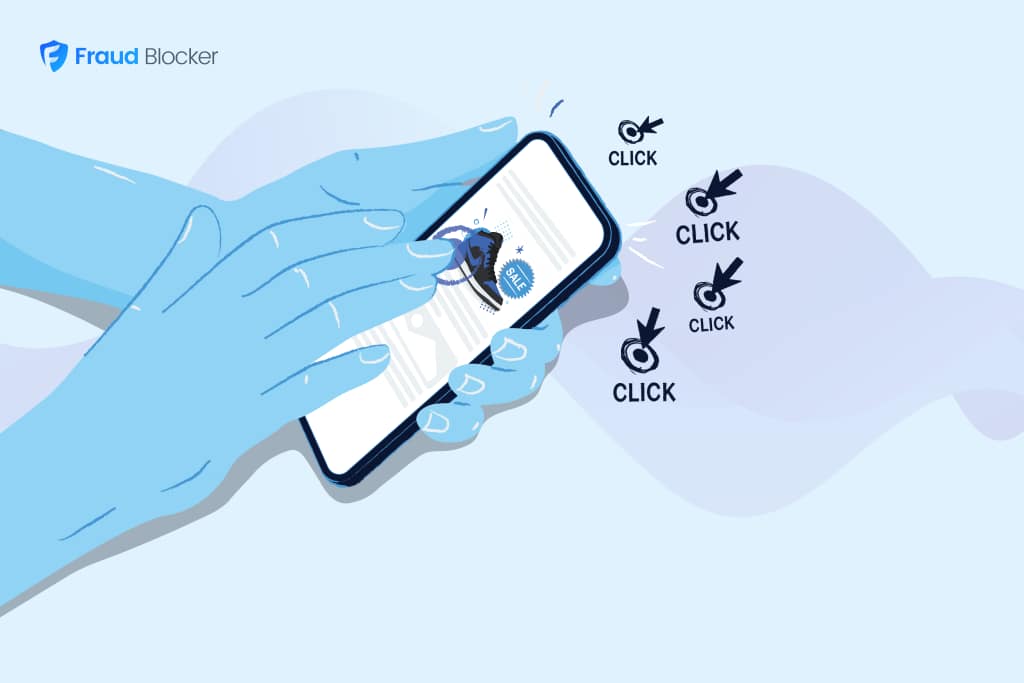
NEW New feature: Verify & block fake emails

We improve your ad performance by blocking click fraud and fake emails

Click fraud is costing advertisers billions in loses. Learn more here.

Click fraud is costing advertisers billions in loses. Learn more here.

In competitive industries, businesses are constantly vying for the top spot – to be seen as the best in their industry, country, or city. However, some take unethical routes, including engaging in competitor click fraud, to sabotage their rivals and boost their status. In this comprehensive guide, we will cover what is competitor click fraud, why it happens, how to identify it, and prevention strategies you can use to protect your business.
Competitor click fraud is when individuals or automated bots deliberately click on a competitor’s online ads with the intent to exhaust their ad budget. This unethical practice increases costs without providing any legitimate business value, and can lead to significant financial losses and disrupt advertising campaigns. This type of click fraud occurs most commonly on pay-per-click platforms, including Google Ads, Bing Ads, and social media advertising networks like Facebook and Instagram.
PPC click fraud by competitors is only part of the picture. Read our full guide to click fraud →
Understanding how competitor click fraud occurs is crucial to defending against it. Fraudsters employ various methods, from simple to sophisticated, to carry out their schemes. Here are a few examples of competitor click fraud:
Manual clicks: someone is hired or incentivized to repeatedly click on a competitor’s ads to deplete their budget. These individuals can even work for the competing company (asked by their superiors to click on a competitor’s ads).
Automated clicks: Scripts or software designed to mimic human behavior can be used to generate fake clicks on a large scale. These bots can even be programmed to change IP addresses and browser fingerprints to avoid detection.
Geo-targeted clicks: Competitors may focus their fraudulent clicks on specific geographic locations where their rival operates and target their ads.
Time-based clicks: Concentrating click activity during peak business hours or when competitor ads are most likely to be shown can deplete budget quickly, and be made to look like normal spikes in activity.
Click farms: Organized groups of low-paid workers who manually click on ads from different devices and IP addresses to appear legitimate. While not common for small businesses, these can occur if the competitor has the means and desire.
Using VPNs or proxy servers: Using VPNs or proxies to change IP addresses frequently makes it difficult for businesses to detect and identify fraudulent activity. Luckily, dedicated click fraud software like Fraud Blocker makes that a much easier task.
Clicks across platforms: A competitor can even move beyond search ads to social media platforms, display networks, and other digital advertising channels in an attempt to use up overall budget.
Read more: How to Detect Click Fraud: Signs and Ways to Block Invalid Traffic
Why would a business risk engaging in click fraud? The motivations are varied and often insidious, ranging from financial sabotage to market domination.
Here are 4 reasons why compeitors engage in click fraud:
Spotting the signs of click fraud early can save your business a significant amount of money and resources. But what should you be looking for?
Here are some indicators to watch out for:
Recognizing the signs of click fraud is crucial, and intervening quickly can save you vital money and resources.
There are a few effective methods to prevent and slow down click fraud. But how does this work, and how can it protect your ads?
Google Ads and other PPC platforms allow advertisers to exclude specific IP addresses from seeing their ads. By regularly updating this list with known fraudulent IPs, businesses can prevent repeat offenders from clicking on their ads.
Adjusting your geotargeting settings can help reduce the likelihood of click fraud. If you notice a high incidence of fraudulent clicks from specific regions, you can exclude or modify your targeting to focus on more trustworthy locations.
In addition to more manual methods, use third-party services that specialize in detecting and preventing click fraud. These advanced services can offer a more comprehensive solution, and often use advanced algorithms and machine learning to identify suspicious activity and block fraudulent clicks in real-time.
We write about this often, but can’t stress it enough: regularly monitoring your PPC campaigns is essential for early detection of click fraud. Set up alerts for unusual activity and report any suspected fraud to your ad platform. Google Ads, for example, has a dedicated team to investigate and address click fraud issues, and if you think you’ve experienced click fraud, you can request a refund by following the steps in this article:
Read more: How to Get a Refund For Invalid Clicks From Google Ads
Competitor click fraud may pose a threat to your business if you are in a competitive industry and utilize channels like Google ads and Meta ads to acquire customers or make sales. By understanding the signs, implementing preventive measures, and utilizing detection tools, you can protect your advertising budgets and maintain the integrity of your campaigns.
For those looking to safeguard their campaigns, Fraud Blocker provides an all-in-one solution that improves ad performance by analyzing, detecting and preventing many of the competitor’s tactics mentioned above.
Try our 7-day free trial and see how much money we can save you.


